Featured
Ole Miss Alumni Review: Midnight Train To Success
Q-and-A with singer/songwriter Jim Weatherly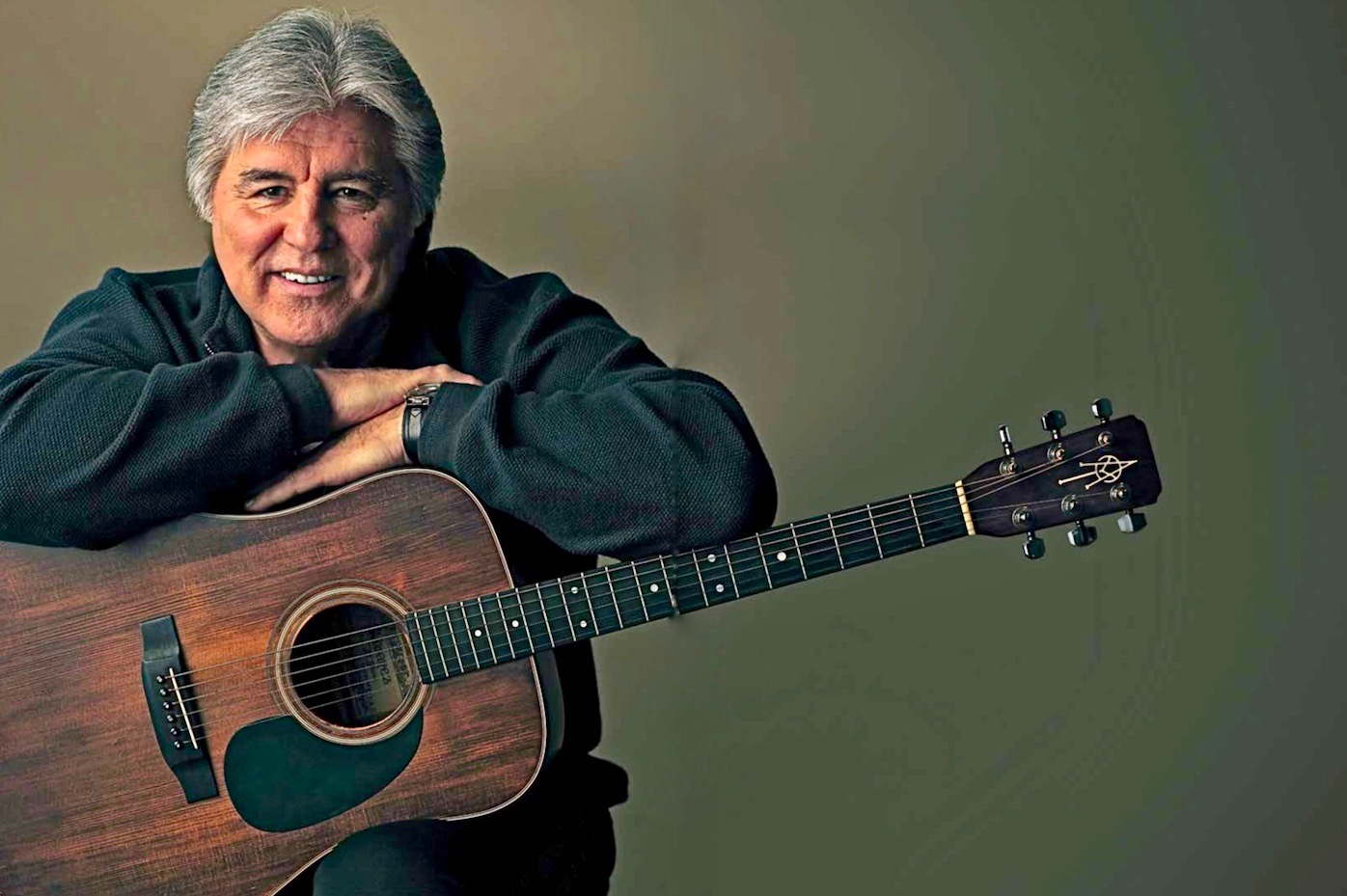
This story was reprinted with permission of the Ole Miss Alumni Review.
Jim Weatherly (66), a native of Pontotoc, played football for legendary Ole Miss Coach Johnny Vaught as an All-Southeastern Conference quarterback and honorable mention All-American on the 1964 team. He was also a member of the only unbeaten and untied national championship squad in University of Mississippi history in 1962 – a team that captured the SEC championship that year and again in 1963.
But Weatherly’s success hasn’t been limited to football. As a professional songwriter, he penned “Midnight Train to Georgia,” which Gladys Knight and the Pips turned into one of the biggest hits of all time. His efforts led to him being elected to the Songwriters Hall of Fame in this year’s class alongside music legends Donovan and the Kinks’ front man Ray Davies, among others.
As a hit songwriter, he also traveled in the same social circles with the elite of the music and acting industries when he lived in Los Angeles. His biggest hit song was inspired by a phone conversation he had with actress Farrah Fawcett. In the 1970s and ’80s, he also played flag football with “The Six Million Dollar Man” Lee Majors and actors Mark Harmon and James Caan.
Weatherly shared his thoughts about his career, his election to the Songwriters Hall of Fame and his memories of playing for Vaught.
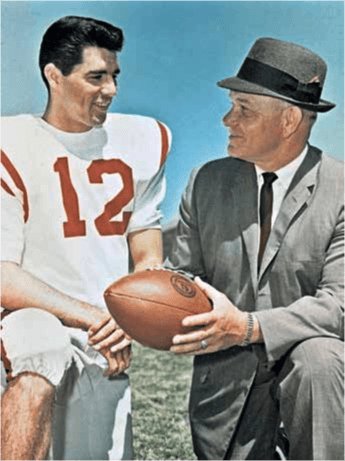
Weatherly and Coach Johnny Vaught. Photo courtesy of Jim Weatherly.
Q: What drew you to Ole Miss?
A: Well, growing up, I had always been a big fan of Ole Miss football, and I followed Ole Miss all through high school, even when I was in junior high and grammar school. I grew up in Pontotoc. I used to listen to the ballgames on the radio. There was just this mystique about listening to what was going on just 30 miles away and in those red-and-blue uniforms.
I don’t think I ever made a conscious decision to go to Ole Miss. It was just kind of like if I ever got the opportunity that’s where I was going. It wasn’t something I really thought a lot about.
Q: What are some of the memories from your time at Ole Miss that really stand out to you?
A: Just being there and being around what was a larger-than-life situation. I mean Ole Miss, that name, had always been in my head, and to be there and be a part of it – I was in awe of a lot of the things that were going on around me. I was in awe of being a part of that Rebel football team and being a part of the Ole Miss student section. As far as particular memories, there’s just the friends and being coached by John Vaught. Those are things that you dream about and things you never forget.
Q: What was that like to play for Johnny Vaught?
A: It was a thrill. It was an honor. He was like a rock star, and so I was in awe of him. To find myself on the field and he was talking to me, that was a pretty big deal.
Q: Is there any one Johnny Vaught story that stands out to you, anything you remember?
A: The thing that comes to mind about Coach Vaught is I don’t think I ever heard him raise his voice. He was kind of like a John Wayne type of character who was very quiet, very direct and didn’t have to raise his voice to get his point across. A lot of coaches feel like they have to scream and yell, and he was not that way.
The other thing about Coach Vaught, in my particular case, was, surprisingly, he was very supportive of my music. I remember my senior year, the day we reported to summer camp for the fall practice, I had a dance I was supposed to play that night because I’d been playing some dances with my band during the summer. And so, I can’t believe I did this, but I did. Sometimes I don’t know where I got some of the gumption that I had. I went over to Coach Vaught’s office, sat down with him and said, “Coach Vaught, I’m supposed to play a dance tonight.” Practice hadn’t started yet, but it was the day we reported, and he was just very quiet. He said, “Well, we just won’t start bed check until tomorrow night,” and that just absolutely blew me away. I couldn’t believe he was that calm, that supportive, that in tune to the realities of other people’s situations, and it always stayed with me. I respected him quite a bit, but that made me respect him even more.
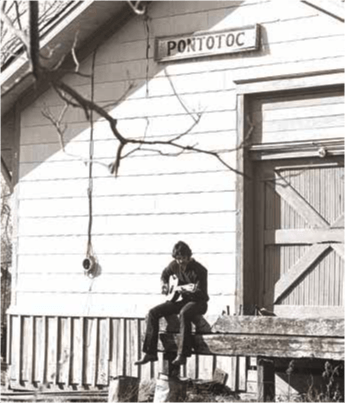
Weatherly, a native of Pontotoc, had an interest in songwriting from an early age.
Q: How did you get into songwriting and then how did you find a way to make a living at it?
A: That’s a good question, especially about how to make a living. I started writing when I was really young. My grandmother used to tell me I would sit down on her front porch and make up cowboy songs, coming home from the cowboy movies on Saturdays. But I really didn’t start making up songs until Elvis came on the scene and there was the dawn of rock ‘n’ roll. I also really loved rockabilly music and really got into it. At that point I started to really try to write things like what I heard on the radio.
I just did it because I could do it, and it was fun. It came natural to me. It wasn’t something that was forced or I had to like really work hard at. I just continued that all my life. I wrote songs while I was at Ole Miss, but that didn’t take anything away from anything else I was doing.
Then, I left with my band to go to California in 1966, and I was writing songs for our group. I wrote songs that were on our first album and just kept on and kept on and found that some people were giving me positive feedback. Eventually, I found the one guy who said what I wanted him to say. I met a guy named Larry Gordon. He listened to about three of my songs and said,“I want you to be at my attorney’s office tomorrow morning at 9 a.m. I’m going to sign you as a writer. I promise you, I will push your songs through the sky.”
That was the commitment I had been looking for from somebody. He made me believe what he said to me. And so, I signed with him. I didn’t even have an attorney, which I wouldn’t advise people to do. Fortunately, it worked out in my favor.
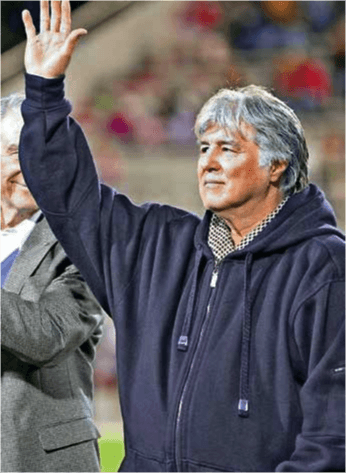
Weatherly is recognized on the feld in Vaught-Hemingway Stadium for his induction into the Ole Miss Alumni Hall of Fame in 2011.
Q: Obviously, you’ll be forever linked to “Midnight Train to Georgia.” It’s one of the biggest hits of all time. It’s a really impressive piece of songwriting. But what was the inspiration for that and were you shocked at the kind of success recording artists have had with that one?
A: I wrote it based on a conversation I had with (actress) Farrah Fawcett. She was dating (actor) Lee Majors, who was a friend of mine. I called Lee one day and Farrah answered the phone and, just during the course of the conversation, she mentioned she was packing her clothes, and she was going to take the midnight plane to Houston to visit her family. “Midnight plane to Houston” got kind of stuck in my mind in bold letters. When I got off the phone, I wrote “Midnight Plane to Houston” in about 30 to 45 minutes. It was right after I got off the phone with her, which was about 5 p.m. or 6 p.m. I put it on my first album that way.
My publisher, Larry Gordon, was pitching songs to people, and he got a phone call from a guy in Atlanta, a producer who was producing Cissy Houston, and they really wanted to cut the song, but they asked if we wouldn’t mind if they changed the title to “Midnight Train to Georgia” because it sounded more like an R&B title, and also Cissy Houston’s name being Houston, they didn’t want Houston in the title. So my publisher said, “Yes, that’s fine with us.” We were both in agreement that we would let the [artists] make the song what they could sing to make it something they could believe.
Gladys Knight [and the Pips] wanted to change the title, too, because they’re from Atlanta, and also the fact that it was a train now opened up a big thing for them with their background vocals. They made it a timeless record, not just a hit record but a timeless record.
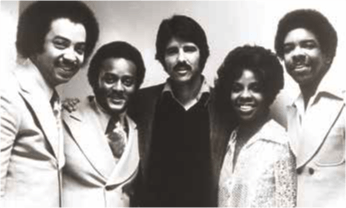
Weatherly with Gladys Knight and the Pips, who took his song ‘Midnight Train to Georgia’ to a No. 1 hit in 1973.
Q: You were speaking about Lee Majors earlier. I understand he claims you were brought in as a ringer in a Los Angeles flag football league once (joking). Tell me a little about that and also the league, which I understand had a few notable people playing in it.
A: He said what? (laughs) I never heard that before. That’s funny. He actually invited me out to play football with his team. He was already playing with them, and when he found out I played quarterback for Ole Miss, he said, “Why don’t you come on out and play with us?” I never thought about being a ringer.
I’ll tell you, it was probably something that saved my life because I hadn’t been doing any kind of exercise, and I had gone through some depression. And once I started playing football again, running and playing sports, that depression lifted. I started to feel like myself again.
(Actor) Mark Harmon, who was quarterback for UCLA, played on another team, and we played against them. Also, James Caan, the actor, came out and played with us. He’s a pretty good athlete. He didn’t come out consistently, but one or two times he came out. There were a lot of music business people, behind- the-scenes kind of people. Gary Usher, who had written songs with Brian Wilson and The Beach Boys, played with us. I can’t think of anybody else off the top my head, but those were just some of the notables.
Q: So what’s life like for you these days? Tell me where you’re living and what you’re doing.
A: We live in Brentwood, Tenn., and we have a small farm. My daughter (Brighton) is an animal lover and she wanted horses, so she is working to train horses and she does really well. She’s a heck of a rider. My son (Zack) is a budding quarterback for his high school team. He led his team this year as a sophomore to a 14-1 record. You can look any of his stats up on MaxPreps. You can also see his video on YouTube, his sophomore video. I mean he’s really good, and, well, he’s better than I ever was. Right now, he is something else.
I have a studio in my home, and I continue to write. I make my CDs here at the house and put them out on the Internet on Amazon or CD Baby or my website, jimweatherly.com. Life is good and it’s quiet, and we really enjoy it here.
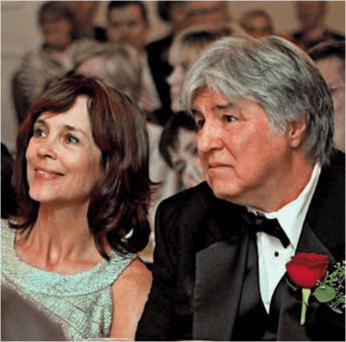
Weatherly with his wife, Cynthia, who live on a small farm in Brentwood, Tenn.
Q: What does it mean to you to be inducted into the Songwriters Hall of Fame along with people like Donovan and Ray Davies?
A: It’s the highest honor as a songwriter that you can have unless they want to give you some kind of a special award or something like that. Just being inducted into the Hall of Fame with all the great songwriters that are in there and, surprisingly, all the great songwriters that aren’t in there yet, it’s just an incredible honor. I was shocked because it’s something I never would let myself think about because I figured my chances were, if I ever got in, way down the list. So, I was really pleasantly surprised, to say the least.
Q: Do you ever get back to campus or to Oxford much? What are the kinds of things you like to do when you come back?
A: I do get back. We get down to one or two football games a year. My son has had official visits down there (at UM), and I still have family that lives in Pontotoc and Tupelo. I get down to visit them and go over to Ole Miss to some of the games. I would like to get down more often than I do, but, you know, raising a family, it’s been tougher to get down to Oxford.
Q: Is there anything else you would like to say about Ole Miss and what this place means to you personally?
A: It was four, or actually five, of the most wonderful years of my life. It’s a very, very special place. I’ve heard before that people who go to Ole Miss really like the University of Mississippi, but they love Ole Miss. That’s exactly the way I feel. Ole Miss is part of my family, and I appreciate them letting me be a part of theirs.
The complete interview with Weatherly can be found online at https://news.olemiss.edu/?s=weatherly.
By Michael Newsom
This story was reprinted with permission from the Ole Miss Alumni Review. The Alumni Review is published quarterly for members of the Ole Miss Alumni Association. Join or renew your membership with the Alumni Association today, and don’t miss a single issue.
For questions, email us at hottytoddynews@gmail.com.
Follow HottyToddy.com on Instagram, Twitter and Snapchat @hottytoddynews. Like its Facebook page: If You Love Oxford and Ole Miss…














